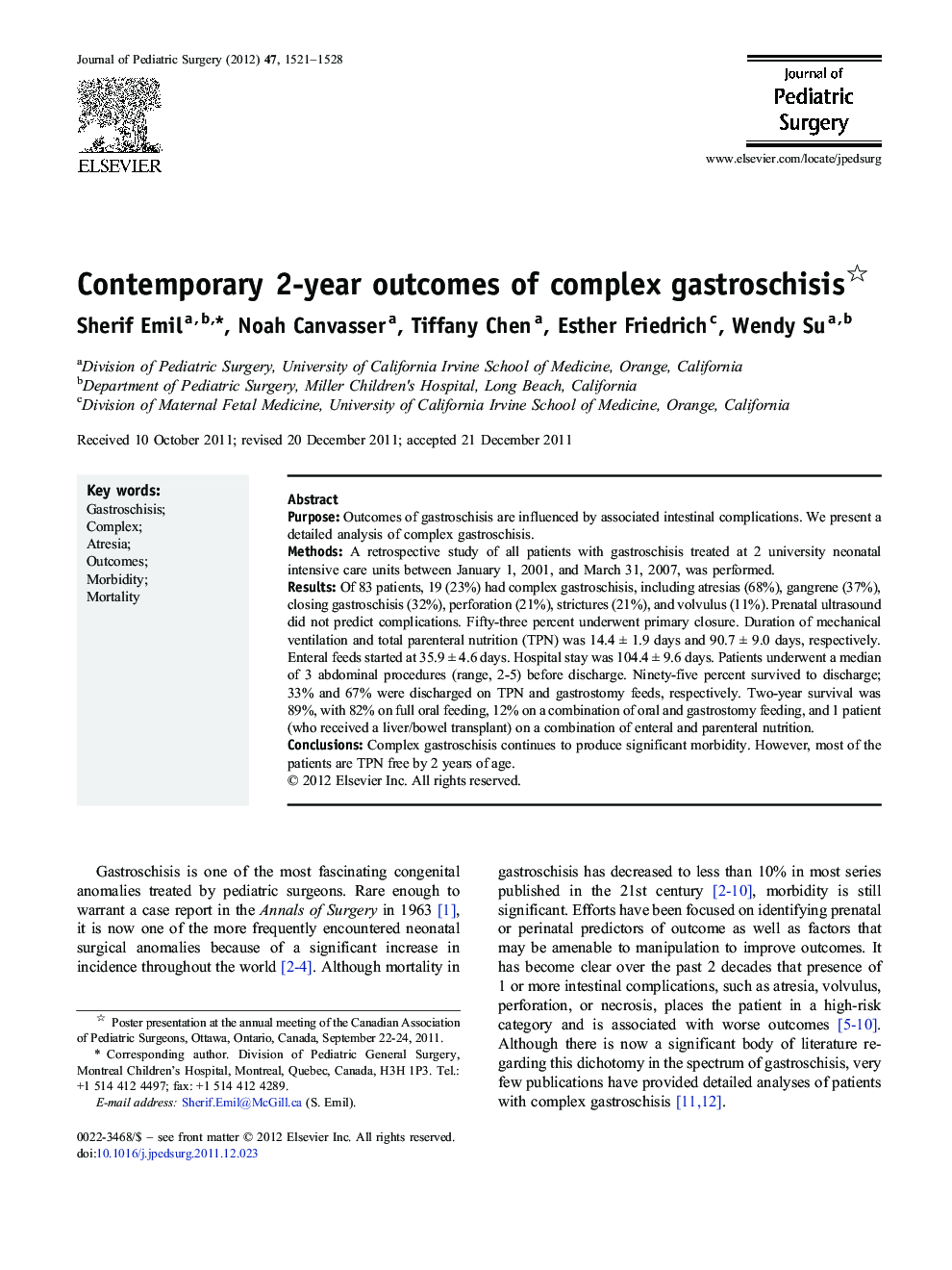| Article ID | Journal | Published Year | Pages | File Type |
|---|---|---|---|---|
| 4156530 | Journal of Pediatric Surgery | 2012 | 8 Pages |
PurposeOutcomes of gastroschisis are influenced by associated intestinal complications. We present a detailed analysis of complex gastroschisis.MethodsA retrospective study of all patients with gastroschisis treated at 2 university neonatal intensive care units between January 1, 2001, and March 31, 2007, was performed.ResultsOf 83 patients, 19 (23%) had complex gastroschisis, including atresias (68%), gangrene (37%), closing gastroschisis (32%), perforation (21%), strictures (21%), and volvulus (11%). Prenatal ultrasound did not predict complications. Fifty-three percent underwent primary closure. Duration of mechanical ventilation and total parenteral nutrition (TPN) was 14.4 ± 1.9 days and 90.7 ± 9.0 days, respectively. Enteral feeds started at 35.9 ± 4.6 days. Hospital stay was 104.4 ± 9.6 days. Patients underwent a median of 3 abdominal procedures (range, 2-5) before discharge. Ninety-five percent survived to discharge; 33% and 67% were discharged on TPN and gastrostomy feeds, respectively. Two-year survival was 89%, with 82% on full oral feeding, 12% on a combination of oral and gastrostomy feeding, and 1 patient (who received a liver/bowel transplant) on a combination of enteral and parenteral nutrition.ConclusionsComplex gastroschisis continues to produce significant morbidity. However, most of the patients are TPN free by 2 years of age.
